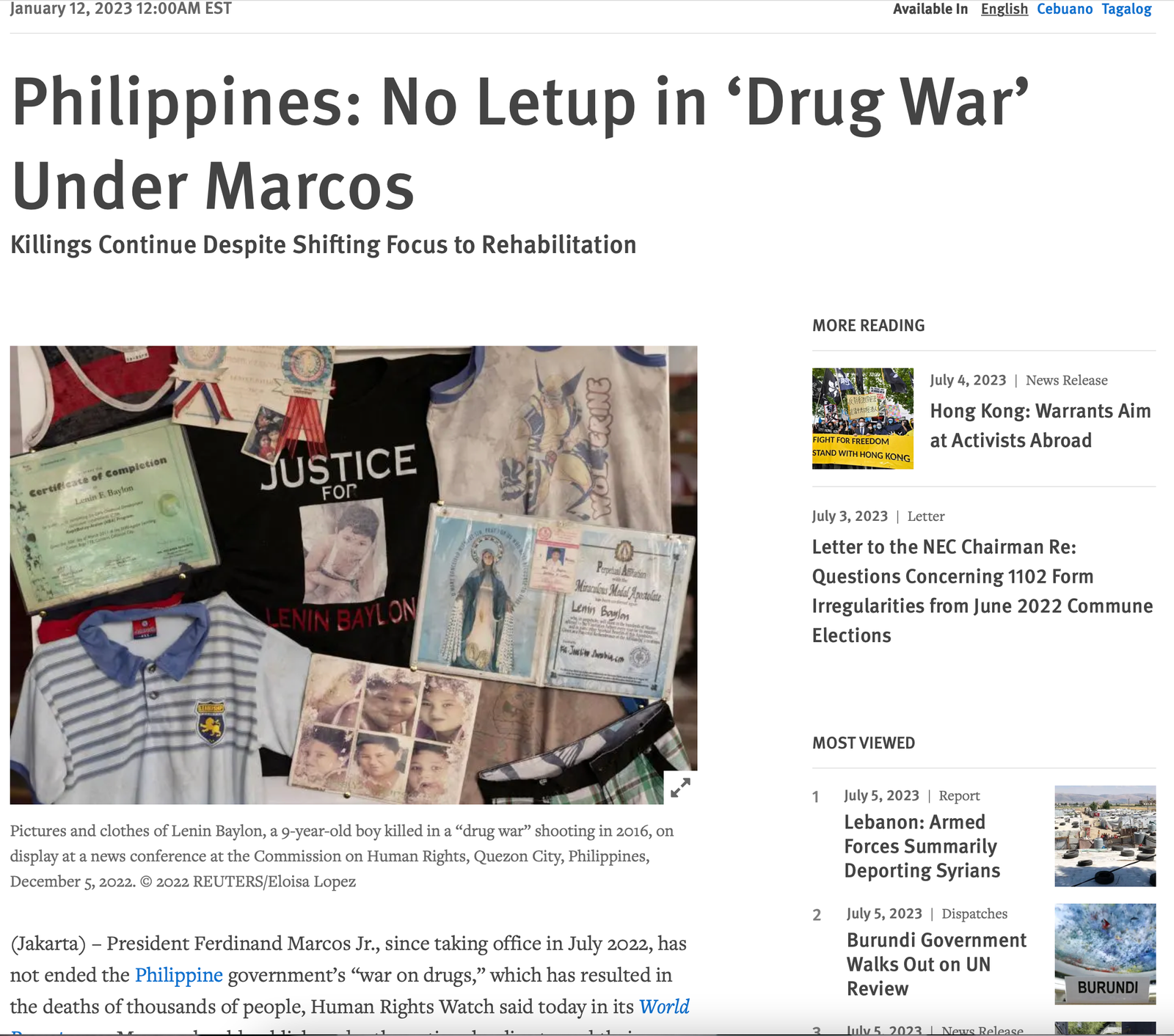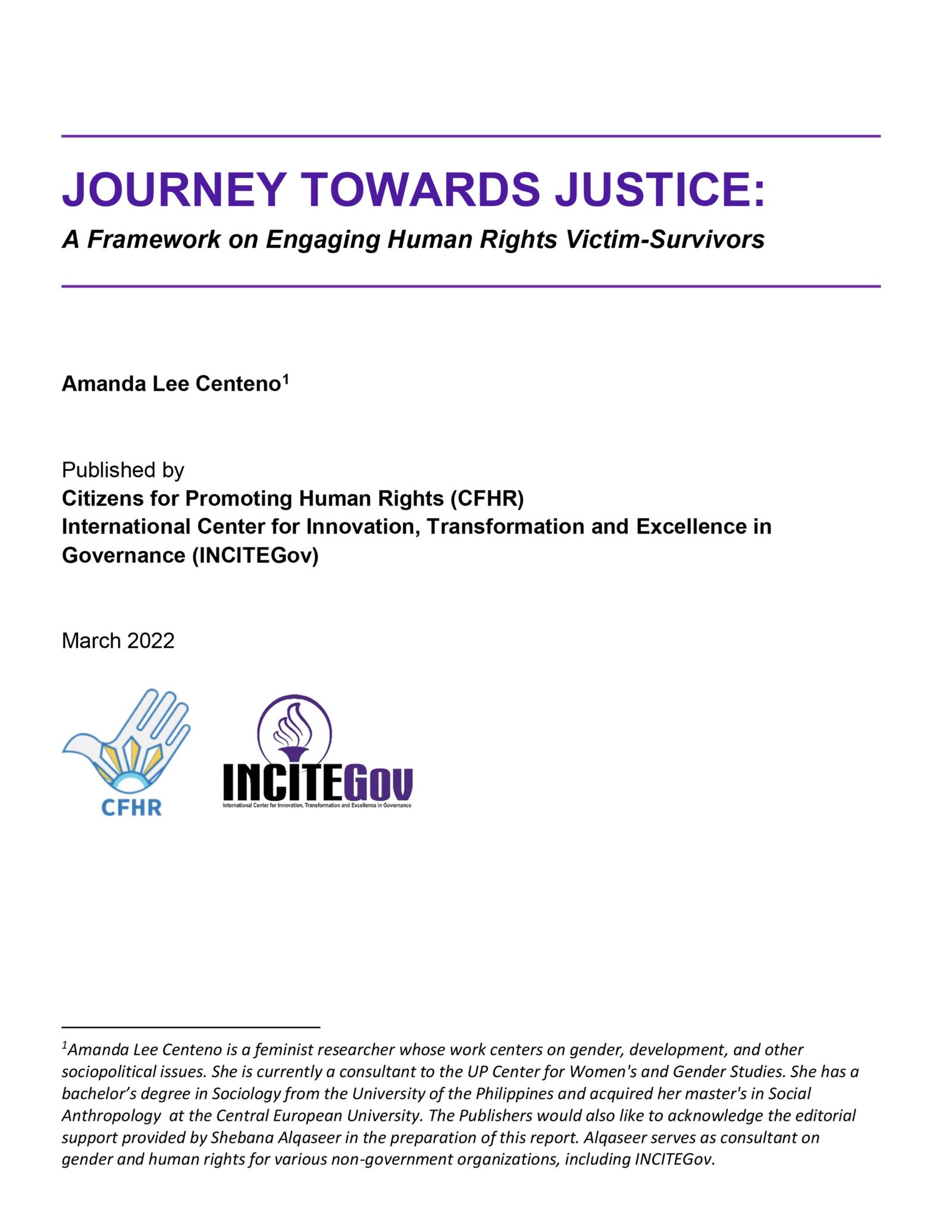
HEADLINES: UP Report: More drug killings under Marcos than Duterte’s last year
In the recent Human Rights Watch Report 2023, President Ferdinand Marcos Jr. faced criticism for failing to end the Philippine government’s “War on Drugs” Campaign. The report emphasizes the importance of individual countries, regardless of size, upholding human rights obligations and working together to protect and promote human rights.




